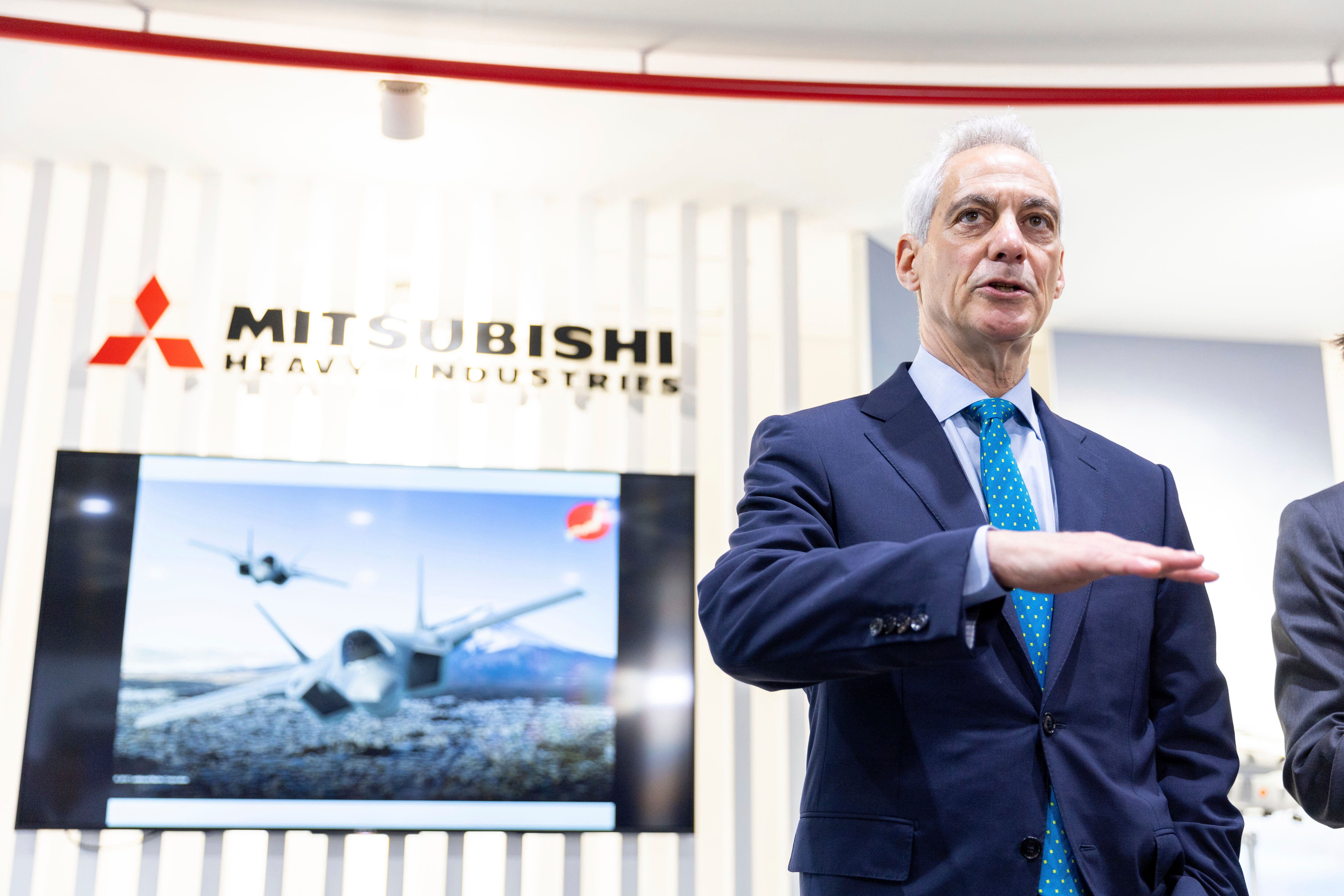The US ambassador to Japan says boosting arms industry ties is key to a stronger security alliance
The U.S. ambassador to Japan has urged Tokyo to take a greater role in developing, producing and supplying weapons “to enhance our collective security” amid conflict in Ukraine, Gaza and elsewhere

The U.S. ambassador to Japan urged Tokyo on Tuesday to take a greater role in developing, producing and supplying weapons “to enhance our collective security" amid conflict in Ukraine, Gaza and elsewhere.
Ambassador Rahm Emanuel visited a Mitsubishi Heavy Industries' F-35 fighter jet factory and stressed the importance of stronger defense industry cooperation between the allies. The United States alone can no longer supply all democracies, he said.
The visit came after Prime Minister Fumio Kishida's trip to Washington, where he met with President Joe Biden and highlighted Japan's commitment to do more as a reliable partner, especially in defense cooperation.
The countries will now look at what Japan can co-license, co-produce and co-develop, Emanuel told reporters. “It's extremely exciting to bring Japan's industrial capability, its engineering smarts, onto the field on behalf of the alliance," he said.
Under the national security strategy that Kishida's government adopted in 2022, Japan is accelerating its military buildup and increasing its defense budget in the face of threats from China, North Korea and Russia. Japan pledged to acquire what it calls counter-strike capability and purchased 400 Tomahawk long-range cruise missiles, a break from its postwar pacifist principles.
Japan also drastically eased its arms export rules. It allowed the sale of lethal weapons to countries from which they were licensed and the overseas sales of a fighter jet it is developing with Britain and Italy. The changes have allowed Japan to ship Japanese-made PAC-3 missiles to the U.S. to help replace those contributed by Washington to Ukraine.
Many U.S. allies have been increasing defense budgets and capabilities following Russia's invasion of Ukraine and the Hamas attack on Israel. To meet obligations of security, defense and deterrence, “we cannot afford for Japan to be on the sidelines," the U.S. ambassador said.
Mitsubishi Heavy's F-35 final assembly and checkout plant near Nagoya produces six of the Lockheed Martin Corp.’s F-35 jets a year and provides maintenance work for those deployed in Japan. The ambassador called the F-35 “the most modern and capable jet we have in our collective defense and deterrence industries.”
Areas of potential cooperation will be discussed at a military industry council and reported to foreign and defense ministers in both countries, Emanuel said.
Bookmark popover
Removed from bookmarks